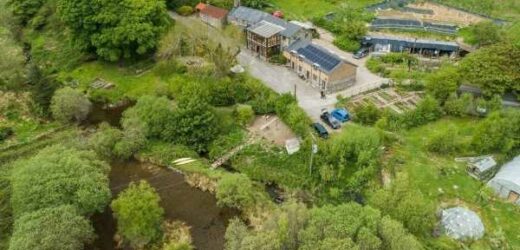A HOLIDAY retreat in Wales has banned visitors who HAVE received a Covid vaccination.
The owner of the Blaeneinion eco-retreat in Machynlleth, Powys has said the site will exclusively be open to those who haven't received the "experimental jab".
Sharon Giradi, who runs the "idyllic" hideaway situated at the head of the Artists Valley, said she has a "duty of care" to her loved ones and visitors.
She has made unfounded claims that there have been "effects on unvaccinated people simply spending time around the 'vaccinated'".
Giradi enforced the barmy ban despite clinical trials showing the jab to be safe and effective – with the benefits massively outweighing the risk.
The owner told guests: "With great sadness we have made the decision that we will be unable to welcome folk on site that are 'vaccinated' with the experimental CV19 jab.
"We have honoured all previous bookings regardless of visitors' beliefs on vaccination.
"There are many people with the same views that I are cautious about the experimental nature of the injections. They are grateful to have somewhere to go.
"I have a duty of care to my family, to our staff and to anyone staying on site."
She then explained the eco-retreat's Public Liability cover does not own "cover people who have volunteered for medical experiments."
More than 2.19 million people in Wales are now double-jabbed against the virus.
A follow-up post by Girardi claimed she is now fully booked until the end of the month after an "overwhelming outpouring of love and support from SO many like-minded souls."
Blaeneinion aims to "create an inspiring conservation, recreation and educational resource that can be enjoyed by future generations."
Source: Read Full Article




